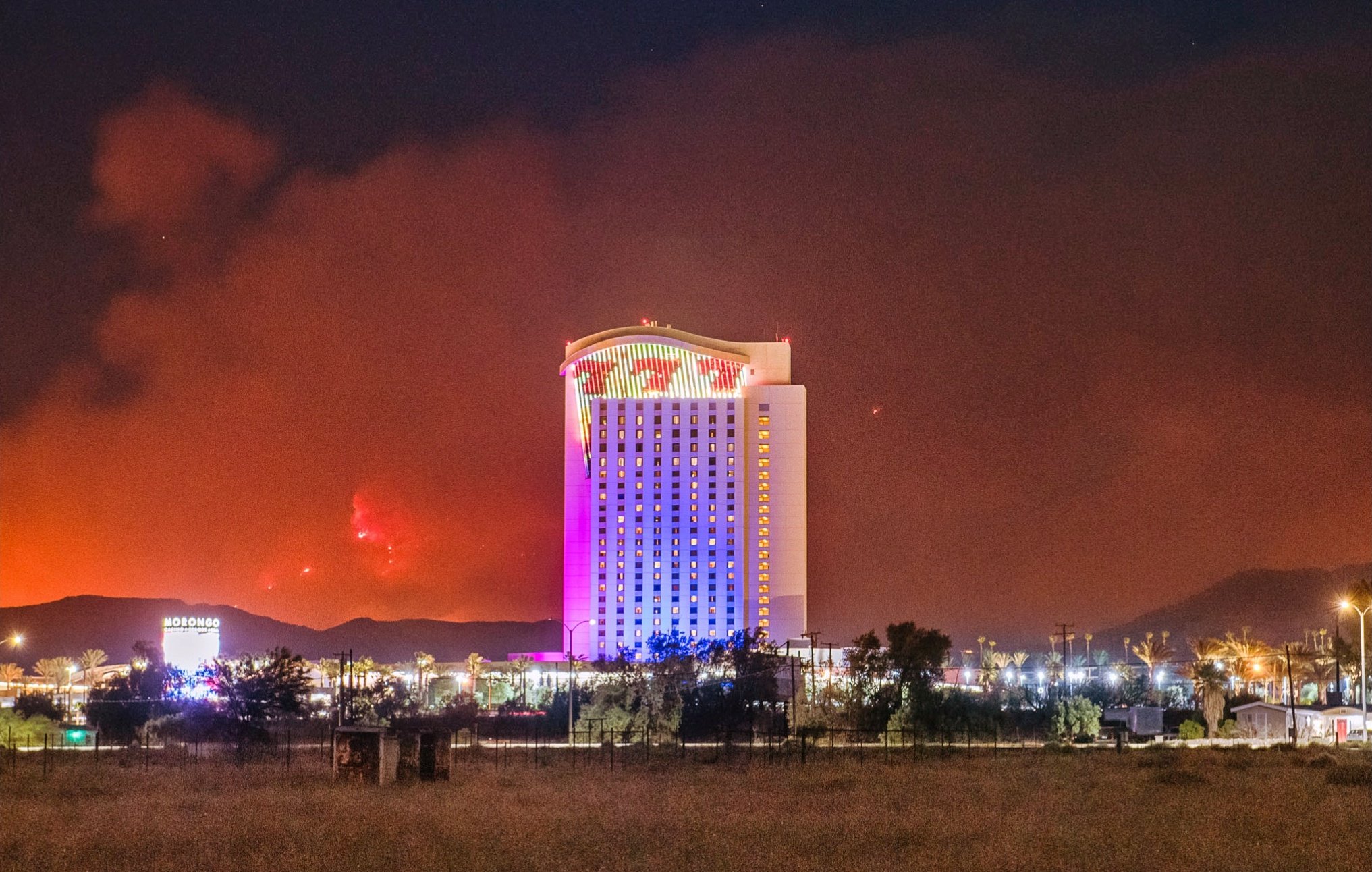
On a day that saw California plunged into darkness, with thick smoke clouds blanketing the state and creating an ominous orange sky, artist and filmmaker Jeff Frost was on the move, driving some 10 hours from his home outside Palm Springs to the Bear Fire in Plumas National Forest, east of Chico, California, on Wednesday.
“It just looks like fog everywhere. I call it the carbon fog. It appears to be over the entire state of California, and I’m still five hours away from the closest fire,” Frost told Artnet News. “With those fire skies, if it’s particularly bad, it can block out the sun out entirely in the middle of the day, like it’s an eclipse.”
For five years, wildfires were an all-consuming passion for Frost. He chased no fewer than 70 raging infernos across the state, shooting an astounding 30 terabytes of footage for California on Fire, a 25-minute time-lapse film documenting the devastating effects of the planet’s ever-intensifying climate change-fueled blazes.
Jeff Frost captured this shot of a Trump flag illuminated by the light of the Lake Fire in San Diego County. Photo courtesy of the artist.
Now, even though we are just entering mid-September, 2020 has already become the worst fire season in California’s history. With a scorching heat wave sending temperatures to a record 121 degrees in Los Angeles this past weekend, coupled with strong Santa Ana winds, wildfire conditions have been at their peak.
As a result, firefighters are currently battling nearly 100 fires up and down the West Coast, with the California blazes alone burning more than three million acres, surpassing the record set just two years ago.
That was the year Frost finished California on Fire, a project so harrowing that he was diagnosed by his therapist with compassion fatigue, a low-grade form of post-traumatic stress disorder.
But Frost has been drawn back this fires season, partly because he feels a responsibility to make works inspired by this deadly issue.
Jeff Frost captured this shot of a couple photographing a California wildfire. Photo courtesy of the artist.
“I’m a little bit shocked by the lack of response from the art community and artists themselves,” he said. “The art that I’m making helps people see things in a different way that wouldn’t necessarily come through if you were watching the nightly news.”
Documenting wildfires is also a source of income, with Frost accepting recent assignments from the New York Times and National Geographic. And with California still slowly reopening, he was eager for a change of scenery.
“I was feeling tired and depressed from being locked in my house,” Frost admitted.
Jeff Frost captured this shot California’s smoke-filled skies. Photo courtesy of the artist.
When one fire broke out near his home, Frost set out to see if he could capture a shot of it burning behind the colorful lights of a local casino. In an even more striking juxtaposition, he shot a wall of hellish-looking smoke seemingly about to engulf a San Diego county home.
Frost says he can’t help but notice that the severity of these disasters is increasing, to the point where he worries that California on Fire, as intense as it is, may no longer accurately represent the raw power of unchecked blazes.
“Right now, this feels like the worst year most of us have had,” Frost said. “The year 2020 has all these layers of apocalyptic, threatening situations. If we don’t make the right choices on every level, 2020, like my film, might seem quaint in the future.”